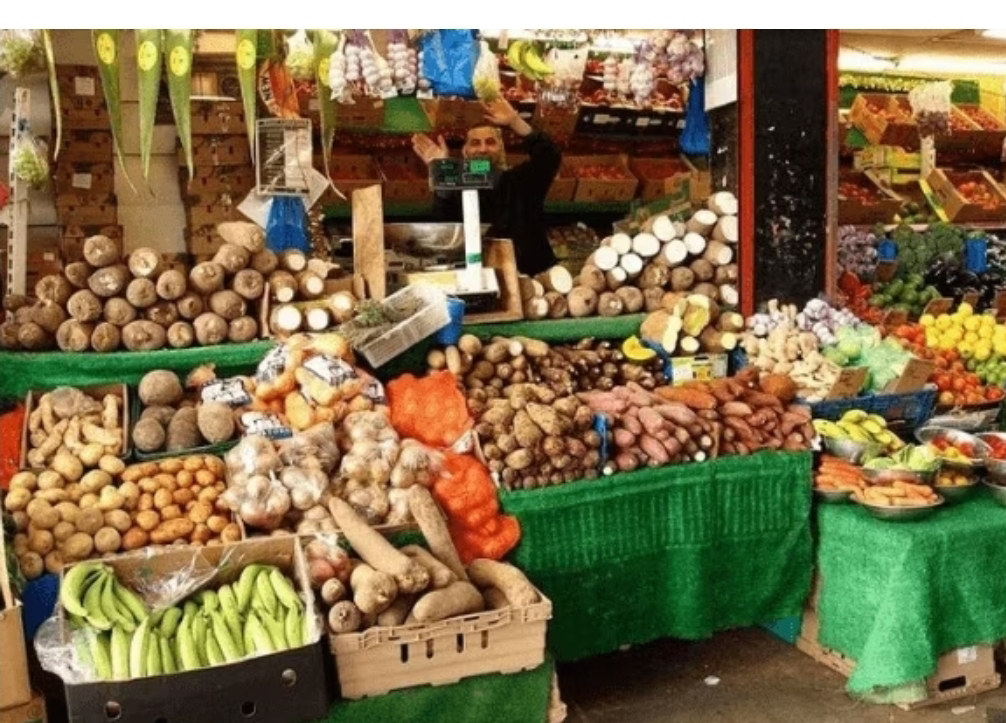Decline in Food Prices Offers Relief Amid Nigeria's Cost of Living Crisis
The ongoing cost of living crisis in Nigeria is showing signs of easing for the first time since late 2022, bringing some unexpected relief to households and raising the prospect of a potential interest rate cut by the Central Bank of Nigeria (CBN) in September.
Data from July 2024 reveals that monthly food inflation in the country has slowed to 39.53 percent, marking the first decrease in 18 months. This decline is largely attributed to falling prices of essential food items such as garri, tomatoes, peppers, yams, and potatoes, which have become more affordable due to increased harvests and improved supply chains.
A survey conducted across major cities in Nigeria highlights a noticeable reduction in the average prices of several key staples between July and August. This decrease is a welcome development for many Nigerians who have been grappling with rising inflation, exacerbated by a recent spike in fuel prices.
Moji Odumosu, a mother of four who shops at Ketu Market, expressed her relief at the price drops. “Thanks to the sharp decline in tomato and garri prices, I can now afford to prepare rice with tomato sauce for my family, something that was nearly impossible just a few months ago,” she said. Odumosu, who earns a monthly salary of N60,000, added that the recent price changes have improved her family’s diet, allowing them to consume more nutritious foods.
According to a survey by BusinessDay, the price of a large basket of tomatoes in Lagos has plummeted by 58 percent, from an average of N120,000 to N50,000. Similarly, in Onitsha, the same basket now costs between N60,000 and N75,000, while in Abuja, prices range from N45,000 to N60,000.
The price of a 50kg bag of white garri has dropped to an average of N65,000, down from N75,000 in July. Additionally, the price of a small bucket of garri has decreased by 42.5 percent, now selling for N2,300 compared to N4,000 just a month earlier.
The cost of potatoes has also seen a significant decline. A small bucket of Irish potatoes, which previously sold for an average of N12,000 between April and June, now sells for N4,000 in Lagos—a 66 percent decrease. In Abuja, the price has dropped to N5,000, while in Enugu, it has fallen to N4,000.
Habanero peppers have experienced a similar trend, with the price of a small basket dropping from N35,000 in May-June to N13,000 in Lagos and Abuja, representing a 63 percent decrease. Meanwhile, the cost of a bag of chili peppers has halved, from N120,000 to N60,000, with a small bucket now priced at N3,500, down from N8,000.
Olamide Adedeji, a caterer in Berger, noted the significance of these price reductions. “Garri and potatoes are staple foods for many Nigerians. When prices skyrocketed a few months ago, many struggled to feed their families adequately. This recent price drop is a much-needed relief,” Adedeji said.
The recent decline in staple food prices has sparked a mix of reactions among Nigerians, with many viewing it as a glimmer of hope amid the ongoing food inflation crisis, which has severely strained household incomes.
In July 2024, the United Nations (UN) warned that 82 million Nigerians, or about 64 percent of the population, could face hunger by 2030 if the government does not address the factors hindering agricultural productivity. Earlier, in April 2023, the UN's World Food Programme (WFP) reported that 24.8 million Nigerians, or one in eight, were suffering from acute hunger.
Experts emphasize that the current reduction in food prices must be maintained to ensure that more Nigerians have access to essential nutrition. AfricaFarmer Mogaji, CEO of X-Ray Consulting, urged the government to support farmers in increasing staple crop production and to address the ongoing security challenges that continue to disrupt food production.
“Households are primarily burdened by food expenses, and the recent decline in staple prices will alleviate some of this pressure,” Mogaji noted.
As prices continue to fall, farmers are calling on the government to address the underlying issues, particularly insecurity, that threaten the sustainability of these gains. Francis Okeleke, CEO of Kenfranics, expressed concern about the future. “While prices are currently falling, the question remains—how long will this last? Insecurity is still a major issue, with many farmers abandoning their fields, especially in central Nigeria. Additionally, the scarcity of foreign exchange and rising fuel costs could offset the benefits we’ve seen in food prices. We need a comprehensive, long-term strategy to ensure food security in Nigeria,” Okeleke advised.




Comments
Post a Comment